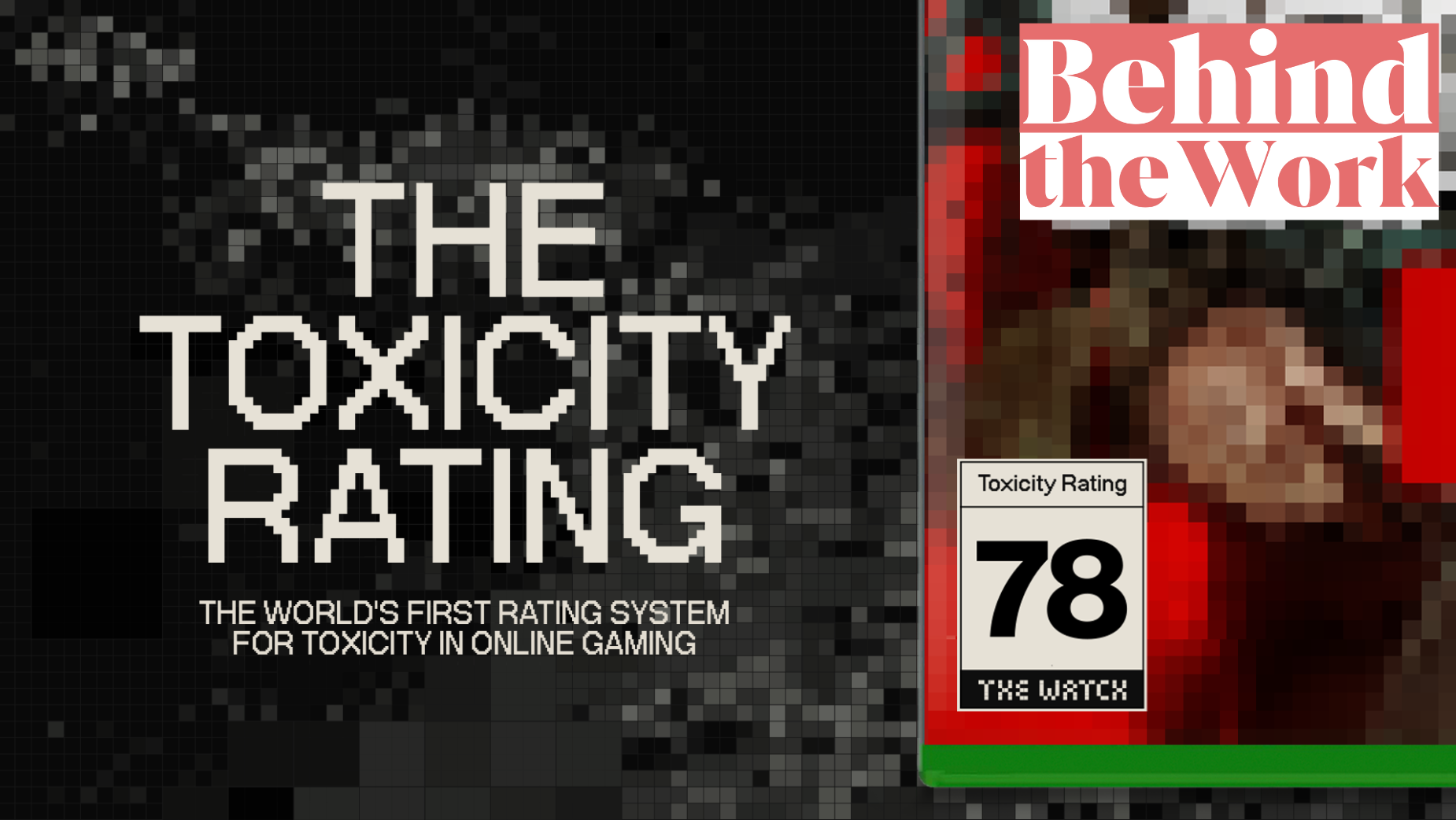
Why This Community Launched the First Rating System for Online Gaming Toxicity

It’s fair to say that, as of today, the way we play video games has evolved. While yes, there’s a lot of fun to be had in playing offline, collecting power-ups like Mario, or immersing oneself in a well-written, compelling story, online play is where the majority of the community spends its time.
Think about it. Nobody wants to play a first person shooter against only the AI, and online play is the solution to that. A game like ‘Stardew Valley’ is fun, but playing with a friend, via the connective power of online play, is even better. And when you can share a campaign playthrough with friends, there’s a sort of magic that comes when you collectively witness a story come to life. And that’s why, across genres, titles and platforms, pretty much everyone these days is gaming online.
Of course, that inevitably leads to some problems. And chief among these is the fact that just about anyone can play video games. There’s no baseline ethic or moral threshold that one has to hit before picking up a controller, or sitting down at their keyboard. Plainly put, there are some very sexist, racist, and bigoted people playing online, who can say and do some really heinous things. And even if you don’t go out of your way to play with them, chances are, no matter what game or community you’re a part of, you’re going to encounter them at some point.
To this end, digital community Melanin Gamers wanted to draw attention to the importance of pushing back against toxic gaming culture. So, it partnered up with Leo Burnett Toronto, seeking to draw attention to the issue. Recognising that you can’t just root out xenophobic behaviour overnight, the two took aim at the Entertainment Software Rating Board (ESRB), which is responsible for informing people what age group a game is appropriate for. By exposing the fact that these ratings do not factor in the nature of online community behaviour, the team advocated for integration of a new rating system… and literally made one in the interim. Titled ‘The Toxicity Rating’, it was created by surveying gamers across multiple titles, and painted a pretty damning picture of exactly why this is such a big issue in today’s culture.
To learn more about how this came to life, LBB’s Josh Neufeldt sat down with Leo Burnett Toronto executive creator Kohl Forsberg, and Melanin Gamers’ founder, Annabel Ashalley-Anthony, for a chat.
LBB> From the top, what was the brief for this campaign?
Kohl> The brief was an extension of what last year's campaign started, which we did with The Watch. So, specifically, we asked ourselves how to further our mission to help reduce toxicity in online gaming and make it a safe space for all.
LBB> Designing an online toxicity rating system is no small task! Why was this approach so important to you?
Annabel> A lot of people don’t know much about just how toxic online gaming communities can get. So, why is it so crucial to put the pressure on for more accurate ratings and better in-game reporting systems? For me, being able to tackle an issue starts with first admitting that there is a problem. And there is a huge one when it comes to the online gaming space.
Currently, there is no rating system for the online experience whatsoever, which is arguably one of the biggest selling points for a lot of games these days. It's important that just as people are informed about the rating of a game, they are also informed about the online aspect. This serves two purposes, to make people aware, but also to shine a light on how toxic some gaming spaces can be. This will then hopefully lead to gamers and companies holding themselves accountable for the treatment they receive online.
LBB> Notably, the creative is driven by research which surveyed gamers to get a sense of their experiences. How many people did you involve in this, and how did you ensure a good representation of demographics and gaming communities?
Kohl> We worked with the Angus Reid Group to survey a diverse base of several hundred gamers for the initial ratings. The survey was unbranded and the respondents had to play the video games sometimes or regularly.
The questions were based on a similar structure the ESRB uses, with additional questions added to account for the toxicity people face through online play. And as the site grows, we’ll be adding the survey data to the existing ratings and as well as more games

LBB> What were the biggest takeaways from this? Were there any particularly interesting stats, or shocking facts you learned?
Kohl> If you’ve spent time playing some of these games online, the results won’t be that shocking, but what really stood out was just how similar each toxicity rating was. It shows just how widespread this issue is within the online space.
LBB> From here, how did you work on adapting the results into actual levels of rating toxicity?
Kohl> Simply put, the ratings represent the average amount of racism, gender discrimination, violence towards others, crude humour, and controlled substance conversation experienced while playing online.
LBB> Let’s talk about the spot itself, which pulls no punches when it comes to demonstrating moments of in-game toxicity. Why was this the approach you wanted to take, and how did you go about sourcing clips featuring this?
Kohl> We wanted to show the reality many gamers face each time they play these games.
All the clips were sourced from Twitch or YouTube, and are all real encounters. And while it isn’t pretty, it shows the real need for ‘The Toxicity Rating’.
LBB> What challenges have you faced during this project? How did you overcome them?
Kohl> Gathering the data was the biggest challenge we faced. We knew from the start we needed to ensure it was collected from a wide range of gamers, and that above all else, it needed to be accurate. Thanks again to our friends at The Angus Reid Group!
Annabel> In terms of challenges with the project, the biggest one was the pushback we received from the small sector of games making the gaming space unwelcoming for the vast majority. Some of them flat out said they prefer to keep the space racist and sexist, and we would be ruining their experience if we did this.
LBB> Do you have any memorable lessons learned from the making of this new campaign?
Annabel> I think a lesson would perhaps be to have launched with a wider pool of people when it came to the rating system. I would say we prepared for the onslaught of trolls, but one can never fully prepare for abuse.
Kohl> With that said, working on a campaign as important as this, we’re always humbled by how many people and organisations are willing to spend their time and resources to help bring these ideas into the world.
LBB> What has the initial response been like? How have people reacted to the campaign?
Kohl> All things considered, we’ve seen such a positive outpouring of support with this campaign. The amount of strangers who’ve reached out, wanting to help amplify the work we’re doing, is really special.
Annabel> The overwhelming majority of people are responding positively. I would go as far as to say that a lot of people have expressed hope that we can really lessen the toxicity of online play. And several people I know who stopped gaming because of this reason are hopeful that in the near future, they can return.
LBB> Going forward, for those who might want to support the work you’re doing, is there anything else you’d like to share about Melanin Gamers?
Annabel> In terms of support, we encourage people to accurately fill out the survey. MG is a not-for-profit, so any help would certainly be welcome.
LBB> Finally, outside of this, what can people do to better push back against online gaming toxicity?
Annabel> People can help just by using the reporting system in games to report abuse. But, they can also call their friends out. This is a community effort, and if we all work together in tandem, then we can see tangible change.
Kohl> If people continue to draw attention to this, hopefully it’ll encourage everyone, including the industry, to rethink how games are rated.















